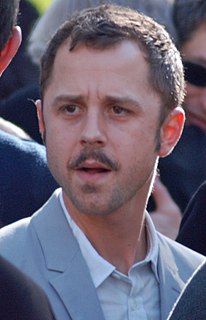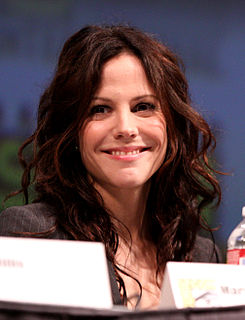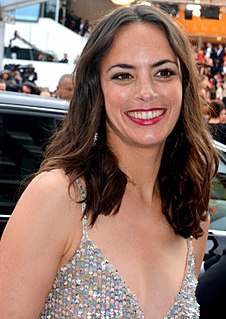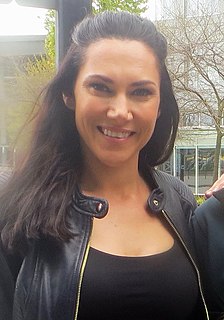A Quote by Gus Van Sant
I think that for the actors, the last thing that they want is a director that's not watching, a director that goes 'Okay, it sounded good to me,' and they were doing something else or preoccupied with something else because they were worried about the light changing.
Related Quotes
I like to adapt to a director's way of working. I love doing that. Each director is so different, and you have to adapt to this new way of doing something. That's what's amazing to me. That's why I love directors. I don't want to director to have to work around me. I think it's more fun for me to come in on their thing.
Whereas if you were writing an op-ed piece or an essay, somebody would be asking, "What's your point?" With poetry you can stay in a moment for as long as you want. Poetry is about metaphor, about a thing standing in for something else. It's the thing that opens out to something else. What that something else is changes for readers. So what's on the page - it falls away.
During the shooting of a scene the director’s eye has to catch even the minutest detail. But this does not mean glaring concentratedly at the set. While the cameras are rolling, I rarely look directly at the actors, but focus my gaze somewhere else. By doing this I sense instantly when something isn’t right. Watching something does not mean fixing your gaze on it, but being aware of it in a natural way. I believe this is what the medieval Noh playwright and theorist Zeami meant by ‘watching with a detached gaze.’
With a director it's all about the work; I'd work with a great director over - you know, I'm not the kind of actor who that doesn't go, 'I want to play this role.' It's more like, 'I want to work with this director,' regardless of what the role is because if it's a good director, you'll probably find a good role because it's a decent film. But a mediocre director will always make a mediocre movie.
I thought the other ones were so obviously - what are we going to do if she burns down the house? The DEA, which I think was maybe the best one because she's wearing the jacket when she goes through the mirror and I think that was kind of amazing because you really weren't expecting that. There's something almost slapstick about this in a way that worried me. It was a little pratfalley with the golf club and the - but I think it probably cut together okay.
We need to think about what cooking is, what context it takes place in and what its relationship to the world of art is. If there were criticisms of my presence at Documenta, that's a good thing because it means we were doing something new. Your mission in creating something artistic is to produce something new and polemical.
I actually had some funny dialogue [ in Stardust Memories], a little piece, and we shot all day in this big ballroom. Gordon Willis was the director of photography, and at the end of the day, Gordon turned to Woody Allen and said, "We cannot accomplish all of this in this space. It's impossible." And we'd been rehearsing and trying to shoot this thing all day. So Woody said, "Okay, let's do something else." He looked at me and said, "Come back tomorrow, I'll put you in something else." And he did.
But, it takes some of the characters to some very dark places, and they start doing things that they might not do, if they were in regular circumstances. Their true humanity comes out - the good and the bad. Something else that was fun was that every director would come in so excited to go with their own creativity.






































